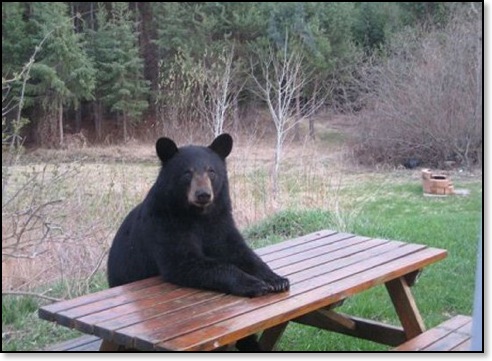In the fall, bears develop an insatiable appetite and may take greater risks to access unnatural food sources than they normally would. This phase in their life cycle is called hyperphagia, and bears are looking for around 20,000 calories a day to build fat stores for the winter.
Bears now searching for food in your neighbourhood: RDOS

When they find food in residential areas, they can become conditioned to human presence and lose their natural fear of us. This is dangerous both for the bears and for humans. To help keep your community and local wildlife safe, it is critical to manage garbage and other bear attractants around the home.
Other bear attractants around the home that also need management include:
- Fruit and nut trees: Harvest fruit and nuts as they ripen and pick up fallen produce as it accumulates.
- Animal feed: Ensure pet and livestock feed is stored securely and do not allow uneaten food to sit out.
- BBQs and bird feeders: Clean barbeques and other outdoor cookers of grease and food after each use and consider removing bird feeders outside of the winter months.
Not all wildlife encounters need to be reported to the Conservation Officer Service (COS) but, there are some situations that can escalate and become a public safety concern if not reported. Reports can be made by calling the RAPP line at 1-877-952-7277 or using the online form at forms.gov.bc.ca/environment/rapp/.
It is important to contact the COS if you see a bear, cougar, coyote, or wolf doing any of the following:
- Accessing human food sources, (e.g. garbage, backyard fruit trees, birdseed, pet food, barbecues)
- Not showing natural fear of humans (i.e. not fleeing when yelled at or when scare attempts are made)
- Lingering around a highly public area such as a city park or school during daylight hours
- Breaking into or destroying property (e.g. sheds, cars, garages)
- Attacking or charging humans or pets
If you have any questions, please email rdos@wildsafebc.com or call 778-531-8040. For more information on managing wildlife attractants and reducing wildlife conflict, please visit wildsafebc.com.